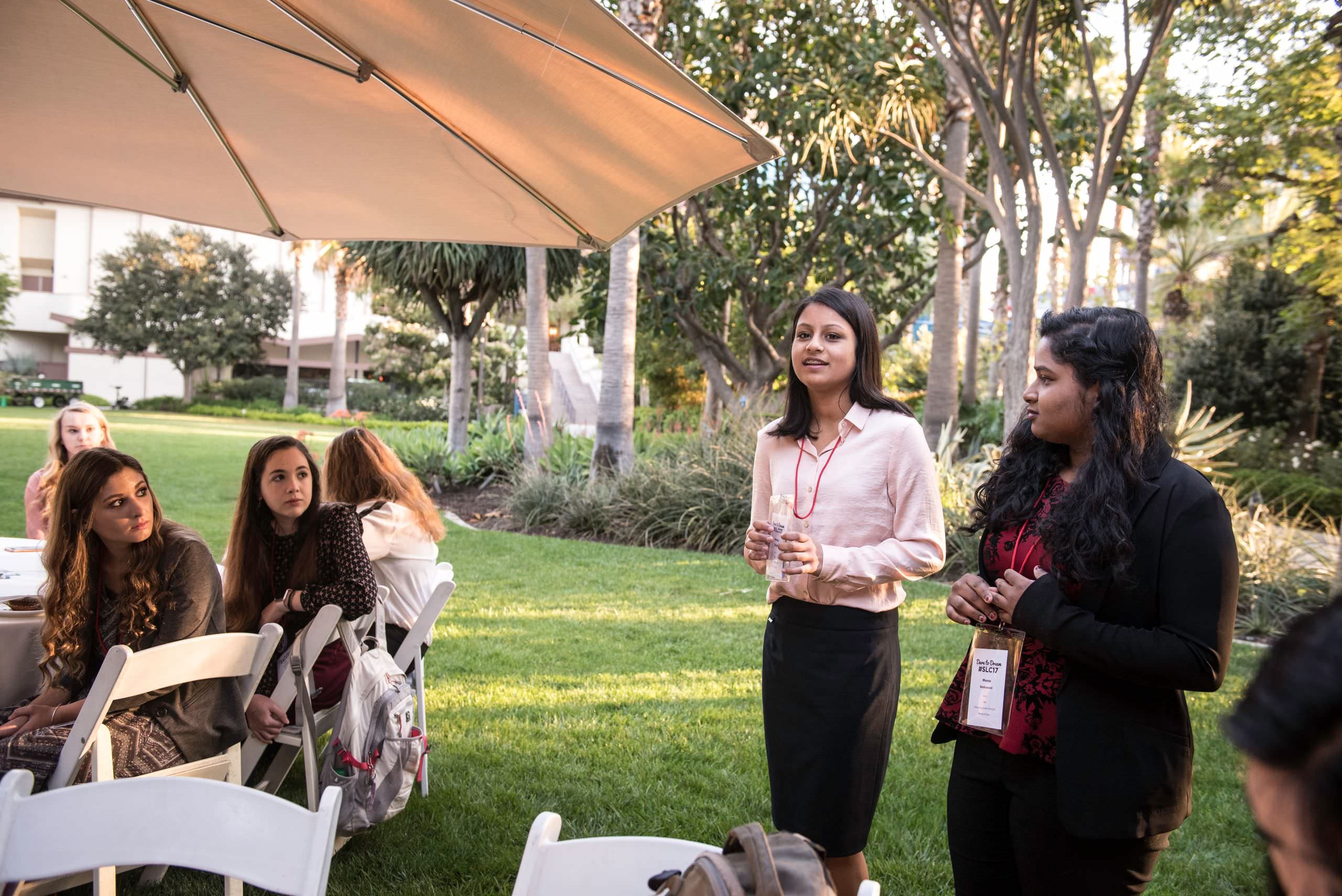Service learning, a teaching strategy that engages students in addressing real-world community needs, offers significant benefits for students’ academic, personal, and social development. This approach goes beyond traditional classroom settings, empowering students to become active learners and engaged citizens.
Empowering Students Through Real-World Impact
Service learning provides students with the opportunity to apply classroom knowledge and skills to address genuine community challenges. This hands-on experience makes learning relevant and meaningful, fostering a deeper understanding of academic concepts. Students actively participate in identifying needs, planning solutions, implementing projects, and reflecting on their experiences. This process not only reinforces academic learning but also cultivates essential life skills.
 Students outside demonstrating their learning for a group of their peers. Service learning empowers students to make a tangible difference in their communities, fostering a sense of purpose and civic responsibility. By working collaboratively to address real-world issues, students develop leadership skills, problem-solving abilities, and a deeper understanding of social issues.
Students outside demonstrating their learning for a group of their peers. Service learning empowers students to make a tangible difference in their communities, fostering a sense of purpose and civic responsibility. By working collaboratively to address real-world issues, students develop leadership skills, problem-solving abilities, and a deeper understanding of social issues.
Fostering Holistic Development Through Active Learning
Unlike traditional classroom settings, service learning actively engages students in the learning process. This approach promotes deeper learning and retention by connecting academic concepts to practical applications.
Key Benefits of Service Learning:
- Personal Growth: Students develop self-confidence, leadership skills, and a sense of empowerment as they contribute to positive change. They learn to take initiative, embrace challenges, and persevere through setbacks.
- Social and Interpersonal Development: Collaboration is central to service learning, fostering teamwork, communication skills, and empathy. Students learn to work effectively in diverse groups, building social awareness and interpersonal skills.
- Academic and Cognitive Development: Service learning enhances critical thinking, problem-solving, and decision-making skills. By applying knowledge to real-world scenarios, students deepen their understanding of academic subjects.
- Civic Engagement: Service learning cultivates a sense of civic responsibility and encourages active participation in community affairs. Students develop a commitment to addressing social issues and contributing to the well-being of their communities.
Research consistently demonstrates the positive impact of service learning on student outcomes. It enhances academic achievement, promotes personal growth, fosters civic engagement, and strengthens communities. Students involved in service learning demonstrate increased engagement in coursework, a stronger sense of community, and improved relationships with teachers. They develop crucial 21st-century skills necessary for success in college, careers, and life. The ability to analyze information, collaborate effectively, and solve complex problems are all nurtured through service learning experiences.
Service-learning isn’t just about acquiring knowledge; it’s about applying that knowledge to make a difference. It’s about empowering students to become active and engaged citizens who are prepared to address the challenges facing our world.
